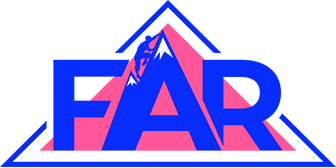Addiction doesn’t just affect the person struggling with substance use, but the entire family system. When a loved one is battling addiction, family members often unknowingly adopt certain roles in an attempt to restore balance and cope with the emotional chaos. These family roles in addiction may feel like survival strategies. But over time, they can become dysfunctional patterns that hinder healing for everyone involved.
At Focused Addiction Recovery in Wallace, NC, we recognize the crucial role families play in both the development and treatment of addiction. By understanding how these roles operate and learning how to replace them with healthy alternatives, families can support lasting recovery for their loved ones and themselves.
What Are Family Roles in Addiction?
Family roles in addiction are behavioral patterns that family members develop in response to the stress, fear, and instability caused by a loved one’s substance use. These roles are often unconscious and shaped by a desire to maintain a sense of control, protect the family unit, or avoid conflict.
While these roles may initially seem helpful, they often perpetuate unhealthy dynamics, enable addiction, and prevent honest communication. Healing begins when families can recognize these patterns and begin working toward healthier interactions.
Dysfunctional Roles Families Often Play
Understanding the most common dysfunctional family roles in addiction is the first step toward change. Each role serves a purpose, but ultimately contributes to denial, blame, and emotional disconnection within the family.
The Addict
The addicted individual becomes the central focus of the family system. Their behavior causes chaos, concern, and emotional upheaval, prompting others to take on roles to “manage” the situation.
The Enabler (Caretaker)
This person tries to maintain family functioning by covering up the addict’s behavior or rescuing them from consequences. Their intentions may be loving, but their actions unintentionally prevent the addict from facing reality.
The Hero
Often an overachiever or perfectionist, the Hero brings a sense of pride to the family. They attempt to distract from the addiction by excelling, often at the cost of their own mental health and emotional needs
The Scapegoat
This family member acts out or causes conflict, drawing attention away from the addicted person. They are often blamed for problems in the family and may internalize shame or anger.
The Mascot
Using humor to defuse tension, the Mascot tries to keep the mood light in the face of chaos. However, this role can mask deep anxiety and emotional pain.
The Lost Child
This person avoids conflict and connection by retreating into their own world. They may be quiet, isolated, or overlooked, and often struggle with self-worth and emotional expression.
These roles create a fragile and often toxic family dynamic. Breaking free from them is essential to healing not only for the person with addiction, but for the entire family system.
Healthy Roles of Family Members in Addiction Recovery
The good news is that dysfunctional roles can be replaced with healthy family roles in addiction recovery. Through self-awareness, education, and therapeutic support, family members can take on new roles that promote healing and accountability.
The Supporter
Supporters offer compassion without enabling. They encourage treatment, set boundaries, and participate in their own recovery journey through therapy or support groups.
The Communicator
Healthy communication is key in recovery. This person helps create a safe space for open, honest conversations that promote emotional healing and mutual understanding.
The Boundary Setter
Boundaries are not about punishment, but protection. This role involves clearly defining acceptable behaviors and sticking to those limits to maintain safety and stability.
Shifting to these healthy roles not only supports the addicted individual, but also allows each family member to reclaim their identity and well-being.
The Importance of Support Groups and Family Therapy
Addiction is a family disease, and recovery is more successful when the whole family is involved. That’s why support groups and family therapy are essential tools in long-term healing.
Groups like Al-Anon and Nar-Anon offer a supportive space for family members to share experiences, gain insights, and develop healthier coping strategies. These communities help loved ones understand that they are not alone — and that their healing matters, too.
At Focused Addiction Recovery, we offer family therapy in Wallace, NC to help families:
- Rebuild trust and communication
- Set healthy boundaries
- Understand the impact of the addiction on each member
- Break generational cycles of dysfunction
- Create a united support system for recovery
Why Family Involvement Matters in Recovery?
Family therapy gives everyone the tools they need to move forward together, as a team. When families heal, individuals have a greater chance of achieving lasting sobriety. Research consistently shows that people recovering from substance use disorders have better outcomes when an informed, emotionally healthy family supports them.
By acknowledging and shifting the family roles in addiction, it becomes possible to dismantle the unhealthy patterns that keep everyone stuck. In their place, you build a foundation of trust, respect, and honest connection, one that supports long-term recovery for the whole family.
Start Healing Today with Focused Addiction Recovery
If your family has been impacted by addiction, you don’t have to go through it alone. At Focused Addiction Recovery in Wallace, NC, our compassionate team is here to help you recognize and transform harmful patterns, rebuild healthy relationships, and support your loved one’s recovery journey.
Contact us today to learn how we can help your family heal, one step at a time.

